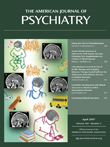I didn’t know what to say.
I had come to the high desert border town of Gallup, N.Mex., as a first-time locum tenens doctor to offer my healing skills to the Indian Health Service and to find some preretirement diversion; my long-time clinic position in Massachusetts had just been taken over by a part-time clinical nurse specialist as a cost-saving measure.
The question before me was this: a Navajo mother of three, a potter who’d recently had a setback in her recovery from a stroke 3 years earlier, had come to the Gallup Indian Medical Center seeking help. Her speech was fine, her right-side weakness was clearing, and even her depression, which had relapsed, she knew would improve with medication adjustment. It was what to do with her deceased brother’s books and his ashes that was troubling her.
Pondering the question, at that moment I felt as depleted as my psychiatric armamentarium.
“He was younger than me,” she told me with tear-filled eyes. “I was supposed to go first.”
I listened as she related how her brother had returned from a distant state with his gay partner to help her in her recovery from the stroke, but shortly after returning to the reservation, upon learning that his partner had cheated on him, he had killed himself. She’d just had his body cremated.
Navajo belief requires that all the possessions of the deceased be buried or burned; otherwise, the soul of the departed will be delayed in moving on to the next world.
“Couldn’t I hold onto his ashes just a while longer to continue to feel his presence?” she asked rhetorically. “Shouldn’t I give his library about homosexuality to the Navajo Nation Museum or bookstore or to someone? There are other young men like him out there, trying to cope with this and understand themselves. Couldn’t they use these books?” Unlike her family, she did not follow traditional Navajo ways.
I avoided her question and increased her antidepressant medications.
“I’ve returned to my pottery,” she told me when she returned for follow-up, more rested and less tense and angry.
It was when she told me where she gathered her clay, at the most desolate and empty place I’d encountered in the Southwest, the Bisti Badlands, a lunar-like landscape devoid of movement and color, that I couldn’t help but comment.
“I’ve been there. It is the most depressing place I’ve ever been to.” I could not conceal my surprise.
“I go out at night when it is cool and quiet. And there is color there,” she assured me. “The clay fires red.”
“Red?”
“It is the hematite, the iron,” she said, offering a teacher’s patient smile. I hadn’t seen her smile before.
“When I fire the pot, the red comes out.”
“Of course,” I thought. I thought some more. “Of course,” I thought again.
My patient had reminded me. Vistas of emptiness and desolation, even places of profound stillness and pallor, sometimes turn out to be places of unexpected serenity and awe (and even color). It is simply a matter of waiting long enough and also looking deeply enough.
People can be like that, too, I realized, and that was my take-home lesson.
I think about her, that Navajo potter, whenever I reflect on my decision to remain in practice and continue seeking locum tenens assignments—and to try to write and share reflections such as this.

